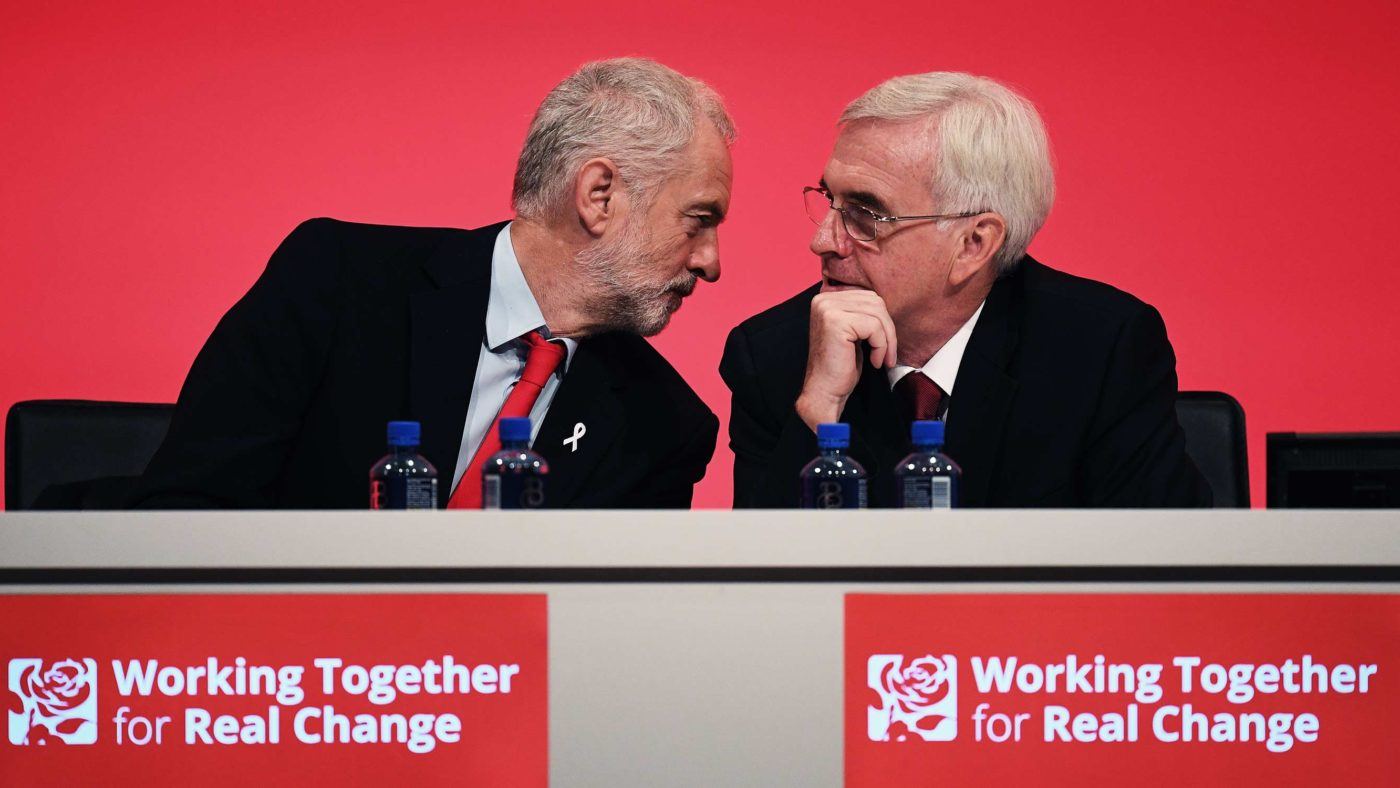Capitalism is in crisis. The public has lost confidence in the free market. The financial crisis shook the pillars, and the temple is now collapsing.
It’s a diagnosis we’ve all heard much of recently – and it’s one with more than a little truth to it. Yes, the world as a whole is getting startlingly better, startlingly quickly. But that’s small comfort to those in countries like Britain which have seen real wages (and productivity) stagnate since 2008. Clearly, something isn’t working. Why else would 40 per cent of British voters have opted for the reheated socialism of Jeremy Corbyn?
But before supporters of the free market fall too deeply into despair, it’s worth pointing out that the grass isn’t exactly greener on the other side of the intellectual fence.
This week, an essay in the Guardian attempted to argue that Britain had lost faith in the free market – only to devolve into a celebration of those great economic thinkers, Paul Mason and John McDonnell, who turned out (wouldn’t you know it?) to have been right about capitalism all along.
If it seemed an odd argument to make in the week that Venezuela – the British socialists’ model society – dominated the headlines, it is all the odder when you consider what McDonnell et al are actually offering. Higher taxes, higher spending, higher benefits, nationalisation, central planning.
These aren’t the answers to the great questions of tomorrow, any more than they were the answers to the great questions of yesterday. “Socialism with an iPad” is just as lame a duck as socialism with pencil and paper.
The disease may be new, but the prescription is familiar – and increasingly moth-eaten. Or to put it another way, the answer to the question “How do we raise Britain’s long-term rate of growth?” is never going to be: “Tax the rich more and give everyone four more bank holidays”.
Yet in some ways, the hard Left have it easy. McDonnell and Jeremy Corbyn never have to do much deep thinking about the state of the economy. For them, the solution is the same as it always has been, and always will be: socialism, socialism and more socialism.
But what about what might be called the rational Left – those who believe in refashioning or restraining the market economy, rather than ripping it up and starting again? They, like their equivalents on the centre-Right, have spent the years since the financial crisis trying to work out a new response to the challenges of the age. Yet there’s little sign of any great solution emerging, unless they want to give Ed Miliband’s lines about “predistribution” or “predators and producers” another spin.
It’s a tribute to Margaret Thatcher’s success that, for almost 20 years after her fall, questions of economic management were mostly about colouring within the lines she had drawn. Most people felt that we had most of the answers to how things should be run, give or take some tinkering with the tax rates.
One of the reasons why politics today feels so neuralgic is that this consensus has seeped away. Voters feel like something, somewhere, has gone askew – and the only politicians who seem solidly confident that they have the right answers are the ones whose answers are always wrong.
PS This weekend I’ll be appearing at the Wilderness Festival to discuss the future of the economy with Vince Cable and others – which is partly what prompted the piece above. If the rest of the panel do have any brilliant ideas, I’ll report back…
This piece is taken from CapX’s Weekly Briefing email. Please subscribe.


